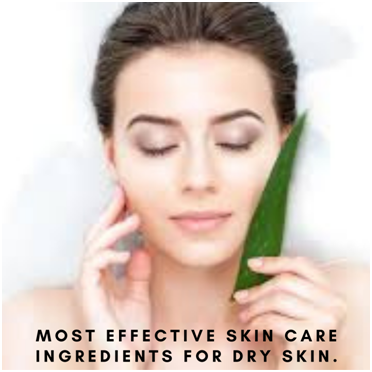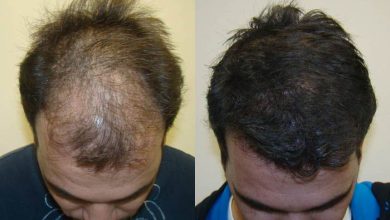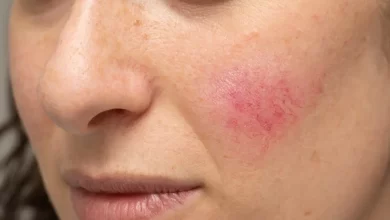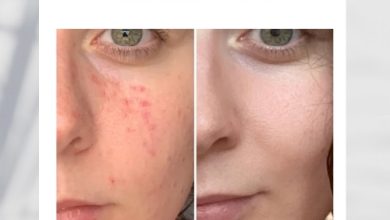6 Most Effective Skin Care Ingredients for Dry Skin

If you’re tired of moisturisers that make your skin feel tight or dry, or facial washes that dehydrate your skin, it’s time to learn more about the components that can help.
Simply because a product is branded as good for dry skin doesn’t mean it will provide the care your skin requires to repair and prevent additional damage.
These five ingredients should be the first things you look for, whether you’re struggling with severely dehydrated skin or merely want protection against dry, red skin.
The causes of dry skin vary depending on whether you’ve had it since you were a child or are experiencing it for the first time.
Ivermectin12mg and Iverheal12mg is an antiparasitic drug used to treat worm infections in the intestine and on the skin.
Dry skin can be inherited, influenced by the environment, or caused by poor-quality skin products. Whatever the cause, there are a number of things you can do to assist dry skin and restore it with appropriate hydration.
So, what is it that hydrates the skin? Unlike moisturisers, which use lipids to lock moisture and skincare products into the skin, hydration treatments use chemicals like Hyaluronic Acid and AHAs to transport water directly to the cells.
It’s critical to look for moisturising skin solutions that contain high-quality components.
High-quality ingredients moisturise your skin’s barrier without making it greasy. The key to keeping your skin looking and feeling its best is to know which components to seek for and which to avoid.
The greatest elements for dry skin are revealed here by our Kate Somerville Skin Health Experts.
1. A Glass of Tea
Tea is not only delicious and relaxing after a hectic day, but it can also be beneficial to your skin.
White tea coupled with Vitamin E offers a strong, yet non-irritating antioxidant to aid in skin rejuvenation, while chamomile extract protects and nourishes delicate, sensitive skin in Calm Cool & Corrected Tranquility Cream.
To get the most out of your skin-care items, read the labels carefully to ensure that your skin is getting the nutrients it need.
The finest products will most likely contain more than one of these components, or you can blend products that contain different ingredients from this list, such as cleansers and lotions.
2. Milk from a goat
Dry skin responds well to goat milk.
Specific lipids found in high-quality goat milk products nourish skin without aggravating it.
These fats are essential for the health of your skin, since they help to seal in moisture while also preserving your skin’s barrier from damaging environmental irritants.
Additionally, goat milk includes Vitamin A and Lactic Acid, both of which are effective in treating dry, irritated skin on the face.
This moisture-boosting component can be found in a variety of products.
The Goat Milk Moisturizing Cream by Kate Somerville is a must-have for dehydrated skin. This cream is hydrating and mildly exfoliating.
3. Hyaluronic Acid is a kind of hyaluronic acid
Hyaluronic acid is a popular element in skincare since it occurs naturally in the body.
It is commonly referred to as HA since it hydrates the skin and makes it appear plump with less wrinkles.
It is a humectant, which means it takes moisture from the environment and transports it to the cells.
As a result, it must be used in conjunction with a nourishing moisturiser or an emollient such as a face oil to form a barrier on the skin.
4. Aloe Vera
Sunburn is the most common usage for aloe vera, although it can also be used to hydrate dry skin. Even in its natural state, it absorbs fast and is suitable for delicate skin.
It’s also suitable for acne-prone or sensitive skin because it helps to minimise redness and relieve inflammation.
Calm Cool & Corrected Tranquility Cream, a daily moisturiser that profoundly hydrates while soothing red and sensitive skin, contains aloe as a component.
5. Ceramides
Ceramides are fatty molecules found naturally in the skin.
They help to reduce transepidermal water loss by forming part of the barrier. As a result, incorporating ceramides into your cosmetic routine might be really beneficial.
Ceramides keep hydration secure within the skin, making it supple and smooth. They also help with dermatitis, flaking, and peeling by reducing the effects of inflammation and irritation.
6. Vitamin C is a powerful antioxidant.
Vitamin C is probably the most often used antioxidant in skincare serums. It’s well-known, well-researched, and may be utilised at any time of year.
Because air pollution, which can induce free radical damage, is stronger in the winter, this antioxidant is especially beneficial.
According to AccuWeather, cold air is denser, trapping pollution in our environment. As a result, our lungs and skin are exposed to contaminants for longer periods of time.
Because dry winter skin is already damaged, it is more prone to the free radical damage induced by winter air pollution.
Using a Vitamin C serum is a tried-and-true technique to provide antioxidant benefits to skin while also preventing free radical damage.




